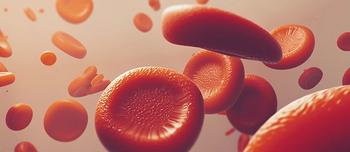
New research in blood cancer includes new treatment options for acute myeloid leukemia and a novel therapy using BK virus-specific T cells to treat BK virus-associated hemorrhagic cystitis.

New research in blood cancer includes new treatment options for acute myeloid leukemia and a novel therapy using BK virus-specific T cells to treat BK virus-associated hemorrhagic cystitis.
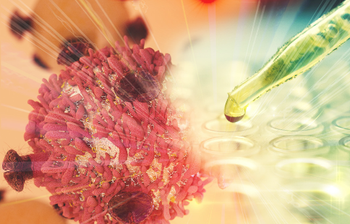
When a patient’s disease stops responding, doctors can usually offer patients several options for a next treatment that will accommodate the patient’s needs and goals, or patients can consider a clinical trial.
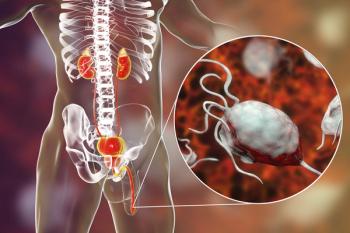
In this special issue of CURE®, we spoke with patients and health care providers about fertility issues, treatment advancements and other topics related to kidney, prostate, testicular and bladder cancers.
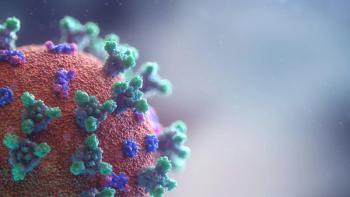
We may never know what triggered the global pandemic that has claimed more than 3.8 million lives. And we won’t know the long-term effects until enough time has elapsed. What we do know for certain is that the incredible strength and collaboration of the scientific community have allowed us to regain some semblance of normalcy.
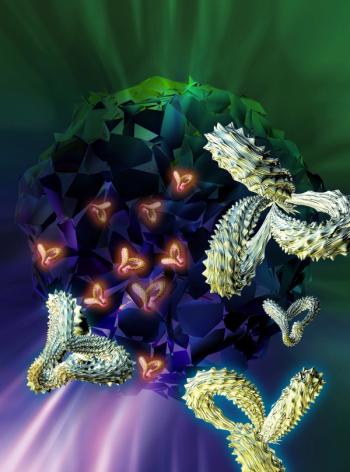
Thanks to ongoing research and clinical trials, it seems that there are always new immunotherapies emerging.

Luckily, obtaining a second opinion has become easier with advances in telehealth and other virtual technologies, which allow patients to share their medical records and test results with physicians and pathologists to potentially improve treatment plans.

We all handle things differently, look at things differently and understand differently, meaning that the journey of each patient with cancer is unique. But there are always similarities among the symptoms, risks and treatments.

Doctors and survivors urge women to consider the future both before and after receiving a cancer diagnosis.

It’s always best to have a team of people, whether friends or family, rooting us on as we face whatever challenges come our way.

New therapies approved following innovative research are increasing survival rates for patients with advanced lung cancer.

Survivor’s guilt is very real, so those who experience it should be reassured that they’re not alone. Don’t be afraid to vocalize those feelings.

We hope this issue helps answer your questions about treatments and side effects, leaving you better informed and more confident as you make decisions about your care.

Cutaneous squamous cell carcinoma, caused by sun exposure or environmental toxins, is usually curable with surgery. Maybe that’s why many don’t realize that, if this cancer goes unchecked and untreated, it can grow, spread and become life-threatening.

We hope the information shared in these pages will be helpful to readers across the genitourinary cancer landscape, offering insights into the myriad treatments available and the issues to consider when choosing a therapeutic path.

In this special issue of CURE®, we take a walk through history, from revisiting the major medical milestones of immunotherapy to reviewing how far it has come in cancer treatment.

"We hope that this array of articles leaves you feeling informed about changes to your health-care system and some key supportive strategies that can improve your quality of life during treatment."

Knowledge is essential for any patient facing cancer, and this issue provides the facts not only about breast implant-associated anaplastic large cell lymphoma but also other rare cancer types or mutations.

When cancer centers emphasize supportive care, patients, survivors and their families benefit and health outcomes can even improve. In this issue of CURE®, we take you inside a facility dedicated to this kind of care — The Supportive Care Center at The University of Texas MD Anderson Cancer Center in Houston.

It’s no surprise that cancer care comes with a large price tag. However, it’s not always obvious at the time of treatment how much the disease, its management and the lasting effects will financially affect someone well into survivorship.

"We hope that this array of articles, while offering comprehensive information about cutting-edge treatments, will also serve as a reminder of the shared experience of those in the cancer community and the sense of connection it can bring," said Chairman and CEO, Mike Hennessy, Sr.

Mike Hennessy, Sr., Chairman and CEO, discusses psychosocial issues associated with women's cancers — the mental, emotional, social and spiritual effects of cancer that occur at diagnosis, during treatment and throughout life after the disease.

"We hope these thoughts on the prevention of, and awareness about, GI cancers and their side effects will be helpful to patients, survivors and caregivers alike," says CEO and Chairman Mike Hennessy, Sr.

With a mission of informing and inspiring the many people affected by cancer, we at CURE® magazine enjoy the proud task of reporting advances in the understanding and treatment of this deeply complex group of diseases.

Bringing you the perspectives of those on the cancer journey is something we especially like to do in our annual bonus issue, as the holidays and the year’s end offer opportunities for reflection.

Lung cancer is no longer a hopeless disease. In 2018 alone, there were eight Food and Drug Administration approvals for either new drugs or new indications to help treat non-small cell and small cell lung cancer.

According to the National Comprehensive Cancer Network, a third of all people treated for cancer will have oral complications that may interfere with treatment or affect quality of life.

Who is at risk? What are the signs? And, maybe most important, how can it be managed to improve a person’s quality of life?

From genetic mutations to treatment behind bars, here's a roundup of our 2018 Summer issue.

Research continues to drive the oncology field.

Checkpoint inhibitors — immunotherapy drugs that are improving the treatment landscape for many patients across the spectrum of cancers — are relatively new. The science involved in finding and treating the patients most likely to respond to these drugs — without overlooking any or treating those who won’t benefit — is even newer.

Published: June 25th 2021 | Updated:
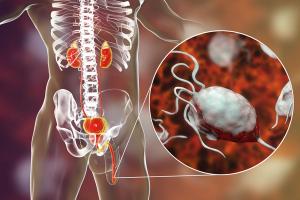
Published: September 25th 2021 | Updated:

Published: May 3rd 2021 | Updated:

Published: November 23rd 2016 | Updated:

Published: December 14th 2016 | Updated:

Published: December 14th 2016 | Updated: